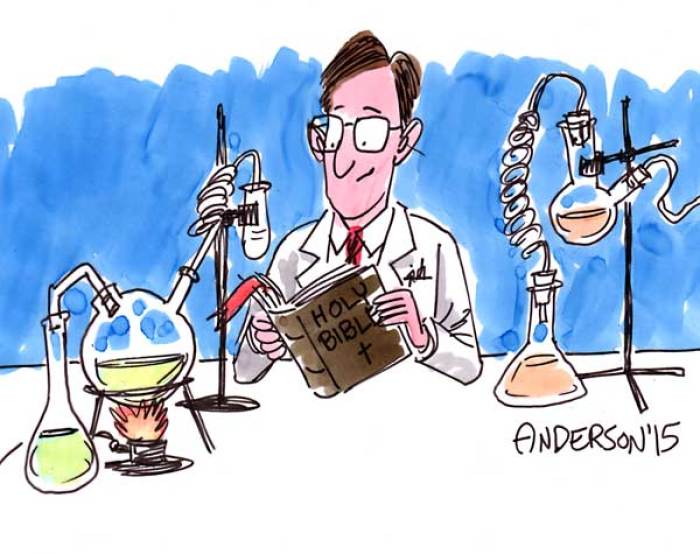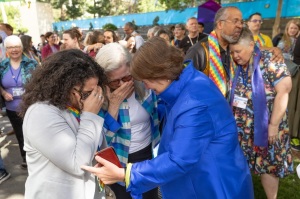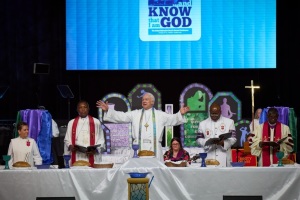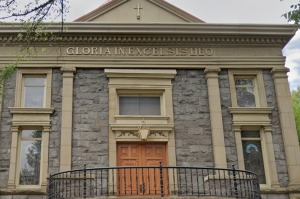People Can Believe in Both Science and Miracles, Scholars Say in Response to Pew Survey

A new Pew survey shows that Americans who were raised in church but left their faith sometimes cite a belief in science and a corresponding disbelief in miracles, but some scholars are saying that those things are not mutually exclusive.
Pew Research asked 5,000 of the original 35,071 people from their 2014 Religious Landscape Study a set of follow-up questions earlier this year. Conducted via telephone interview from mid-March to early May, respondents who self-identified as "nones" — those with no religious affiliation — were asked to explain why they left their faith.
In results published on Tuesday, nearly 80 percent of those who identified as "nones" were raised in a religion of some kind before shedding it in their adult years. Many types of replies emerged from the questions, but a common response that appeared was one of no longer believing in their faith because of lack of evidence paired with a newfound belief in "science."
One respondent told Pew: "I'm a scientist now, and I don't believe in miracles."
Because many Christians, particularly Pentecostals, believe in both the historic accounts of Jesus' miracles and the continuation of miracles today, The Christian Post reached out to a scientist and a philosopher at Evangel University, an Assemblies of God school in Springfield, Missouri, to further explore this topic.
Does belief in science preclude faith and the miraculous?
"Everybody uses evidence to make decisions whether we realize it or not, and everyone has presuppositions whether they realize or not," said Michael Tenneson in a phone interview with CP on Thursday.
"And the first bet to decide on a truth claim has to be an examination of our biases and how those are going to alter our interpretation of the data," added Tenneson, who's a professor of biology and chairs the department of natural and applied sciences at Evangel, where he has taught for 30 years.
With theology it is no different.
"I frequently make the case that conclusions about theology and faith are made in the same kinds of ways that we make decisions about science. In other words, theological doctrine is also derived from evidence," Tenneson said.
With respect to evidence for theological claims, he said, "there is the literary record of the Old and New Testaments, and there is the historic documents of Josephus and others. We have archaeological evidence and we have personal experience."
Science misrepresents itself, then, when it is said that it only uses physical data to arrive at conclusions.
"If somebody says, 'I was a Christian, I learned about science, and I therefore concluded that there is no God,' [they] are actually basing their conclusion on evidence. They are basing it on an acceptance of a philosophical viewpoint," Tenneson concluded.
Brandon Schmidly, philosophy professor at Evangel and chair of undergraduate seminary programs, concurs.
In response to the Pew respondent who asserted that he rejects miracles because he is a scientist, Schmidly offered that what seems to have happened is a culture-wide misunderstanding that such things are contradictory when, in fact, they are not.
Unlike two obviously contradictory statements like 'It is raining outside' and 'It is not raining outside,' he continued, "that claim [that religion is not a worthy discipline] is not a scientific claim, it's a philosophical claim. It's a claim about a relationship of two concepts that cannot be put under a microscope or tested with a Bunsen burner. So, it's that inference that is a faulty one that leads to this faulty conclusion that if you start to trust in science you can't believe in miracles."
Those who are professing that they now believe in science can only do so by inferring the contradiction and accepting the claim that science is a trustworthy discipline and religion is not, Schmidly noted.
The Pew study also found that around 10 percent of religious "nones" who said they were raised with a religious affiliation are now religiously "inactive."
Nor are "nones" monolithic. While some claim belief in science inhibits them from believing in miracles, others don the label "spiritual," indicating an awareness of a realm that lies outside of what can be discovered scientifically.
As CP reported in May, a new documentary film is set to be released within the next year that explores the intersection of science, the miraculous, and medical testing. Ten years ago Pew conducted a survey that found that "Christians in 10 countries reported witnessing a miraculous healing from prayer in Jesus' name." To the frustration of scientists and philosophers, many of these claims are not corroborated in a scientifically defensible manner.
To view the full results of the most recent Pew survey, click here.




























